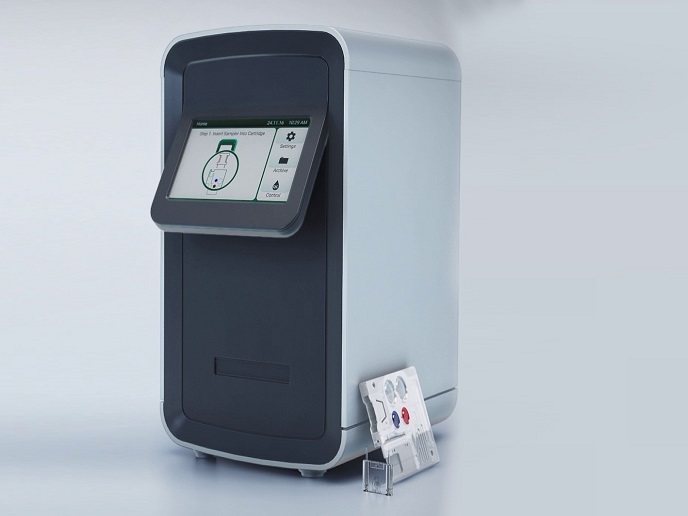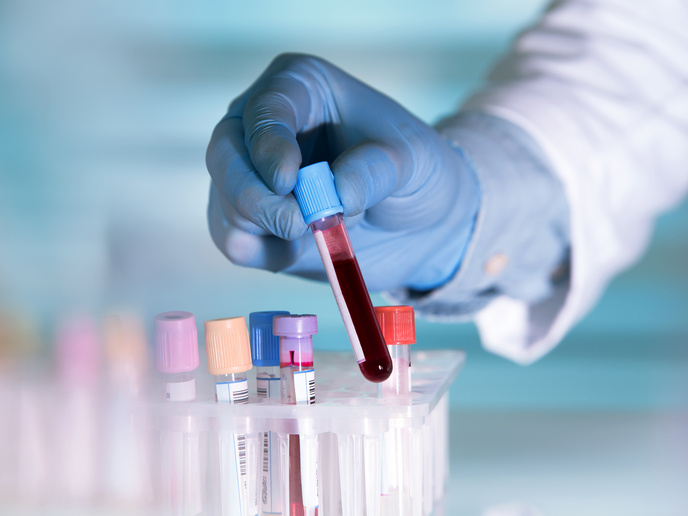A smart haematology analyser for fast results at the point of care
CBC analysis offers multi-parametric evaluation of blood constituents, including red blood cells, white blood cells and platelets. Results provide insight into patient wellbeing and can diagnose conditions such as anaemia, infection and leukaemia. Conventionally, CBC tests are performed by automated and complex haematology analysers at clinical laboratories. A point-of-care (POC) device has been recognised as an unmet need for expediting diagnosis and prompt treatment.
An AI-based analyser
Scientists of the EU-funded HemoScreen project have developed a haematology analyser suitable for POC use with no need for extensive maintenance and expensive consumables. “HemoScreen™ can deliver laboratory-quality CBC results within 6 min with just one drop of capillary blood, finally making this crucial test simple and accessible,” explains Avishay Bransky, CEO of PixCell Medical. It measures red blood cells, platelets, and white blood cells, estimates haemoglobin levels and flags any cell morphological abnormalities. The innovation behind HemoScreen™ is the combination of Viscoelastic Focusing(opens in new window) (VEF) technology with AI. VEF is a novel microfluidics-based technology that allows cells to align perfectly into a single layer, facilitating their optical analysis. Importantly, VEF is not sensitive to clogging or vibrations that can cloud results in the traditional haematology analysers. HemoScreen™ utilises ‘lab-on-a-cartridge’ technology, disposable cartridges that contain all the necessary reagents, significantly reducing preparation and calibration time. This also simplifies the whole blood testing process and eliminates potential user-associated errors and risk of cross contamination.
HemoScreen™ performance and benefits
HemoScreen™ was developed by PixCell Medical Technologies(opens in new window) in Israel and has already received regulatory approval for use in the EU. It is a robust device that simplifies and decentralises CBC testing so that it can be operated by anyone virtually anywhere. The calibration of cartridges with various internal controls that ensures that operator skills do not compromise results also means that no professional training is required. Following assessment in various laboratories across the world, HemoScreen™ has shown equivalent performance to high-end instruments. Comparison with conventional lab analysers(opens in new window) has demonstrated the potential of HemoScreen™ to fill the gap in POC diagnosis, making it the ideal solution to improve clinical workflows. The long-term benefits include CBC testing at the intensive care unit (ICU) and emergency rooms, where results are needed rapidly. HemoScreen™ has proved suitable for the evaluation and management of patients receiving chemotherapy treatment for haematological malignancies(opens in new window). Currently, it is being tested in a pilot study in Denmark on oncology patients receiving chemotherapy treatment at home. According to Bransky: “We are constantly improving the algorithms, which is the beauty of AI and machine learning; the more data we have, the more the AI can learn and improve its performance.” This means that HemoScreen™ could be used in the COVID-19 pandemic for patient management and clinical decision-making, such as transfer to ICU, intubation, and patient antibiotic regimes. At the same time, by reducing the transport of contaminated samples within the hospital, it would reduce the infection risk of laboratory staff. Through established and future collaborations with industrial partners, the HemoScreen™ team is laying the ground for the worldwide commercialisation of their device. Following FDA clearance in the United States, they are in the process of expanding potential HemoScreen™ applications such as sepsis diagnosis.







